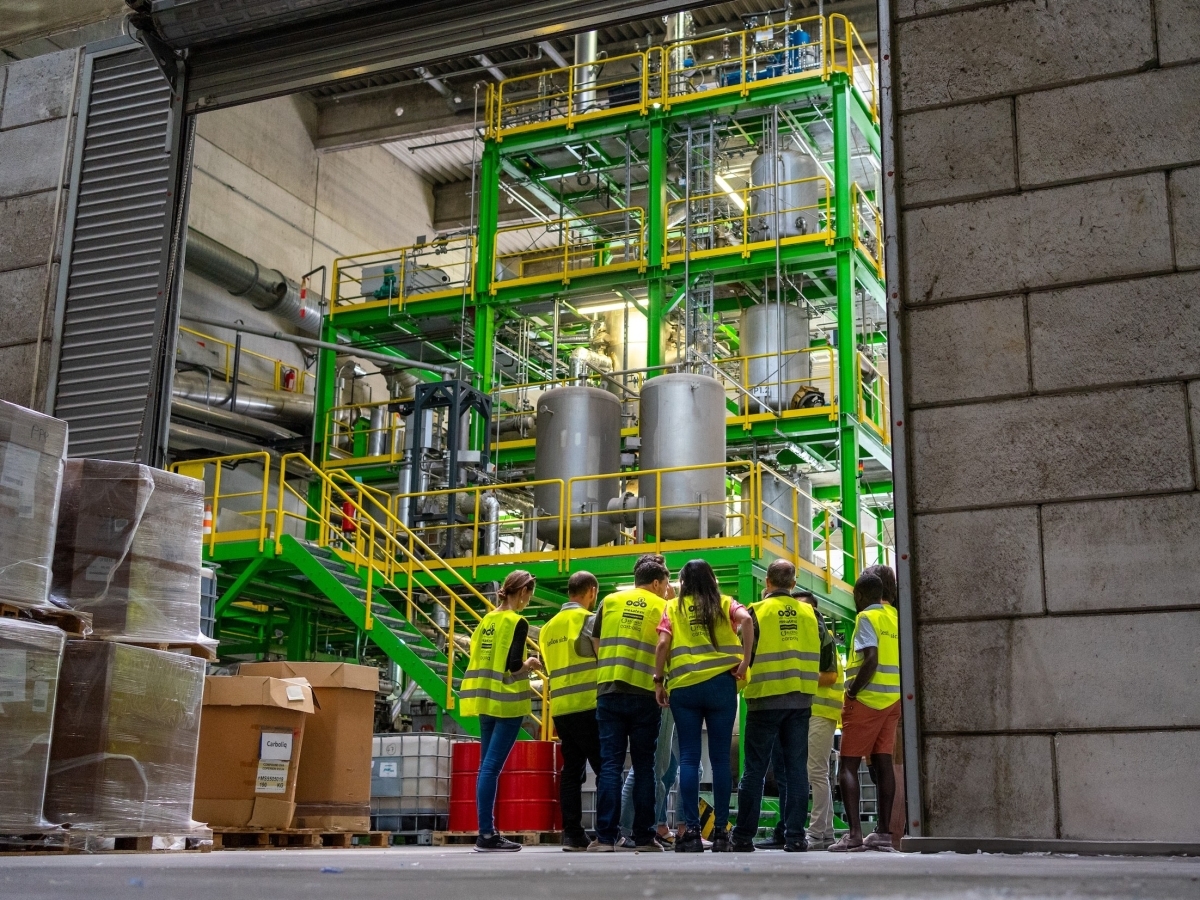Circular Valley Forum 2025: Chemistry as a driver of circular transformation
13.11.2025Two panels at the Circular Valley Forum 2025 will focus on chemistry. On November 14 in Wuppertal, researchers and companies will present solutions for circular value creation that have already been developed and discuss ways to implement them more quickly.
 A chemical plant belonging to the start-up Carboliq during a visit by other start-ups
A chemical plant belonging to the start-up Carboliq during a visit by other start-ups
© Jan Turek/Circular Valley
Chemistry plays a central role in the success of the circular economy, both as a supplier of innovative materials and as an industry that enables circular processes. At the Circular Valley Forum 2025, two panels will discuss how the solutions that are already available today can be put into practice.
On November 14, 2025, more than 1200 leading figures from business, politics, science, and society will once again gather at the Historic Town Hall in Wuppertal. Under the motto “Action across Borders and Industries,” the annual circular economy meeting will highlight how cooperation across industry and national borders is driving transformation.
Research shows what is possible
The panel discussion, "What's Possible in Chemistry: The Scientific Perspective," will provide insights into technological solutions that chemical research has already developed. Representatives from basic and applied research and industrial development will discuss the industry's potential for circular value creation.
Participants will include Prof. Regina Palkovits (RWTH Aachen University and Head of the Catalaix Program: Catalysis for a Circular Economy), Prof. Dr. Manfred Renner (CEO of Fraunhofer UMSICHT and Fraunhofer CCPE), Frank F. Meyer (SVP and Head of R&D at Henkel Consumer Brands), and Inge Nevens (CEO of VITO). The panel will discuss how to transfer existing technologies, such as those for raw material recovery or chemical recycling, more quickly from the laboratory to industrial applications. William Stevens, CEO of Tech Tour, will moderate the panel.
"Chemistry becomes a catalyst for the circular economy"
The second panel, "Putting the Potential into Practice" demonstrates what is currently possible. Here, companies report on how they are implementing concrete circular chemical solutions. For example, Düsseldorf Airport is producing synthetic kerosene from CO₂, water, and renewable energies. LyondellBasell has laid the groundwork for a chemical recycling plant in Wesseling, demonstrating how such technologies can be incorporated into existing material flows.
"As the 'industry of industries,' the chemical industry is an integral part of our everyday lives. It produces lighter, more durable, and higher-quality products,” says Dr. Carsten Gerhardt, Chairman of the Circular Valley Foundation. This makes it a key player in the transition to a circular economy. “Chemical sites can become catalysts for circular transformation.” The chemical industry has many solutions for a functioning circular economy. Now, the existing potential must be leveraged through cooperation across science, industry, and regions.
www.circular-valley.org/forum2025
